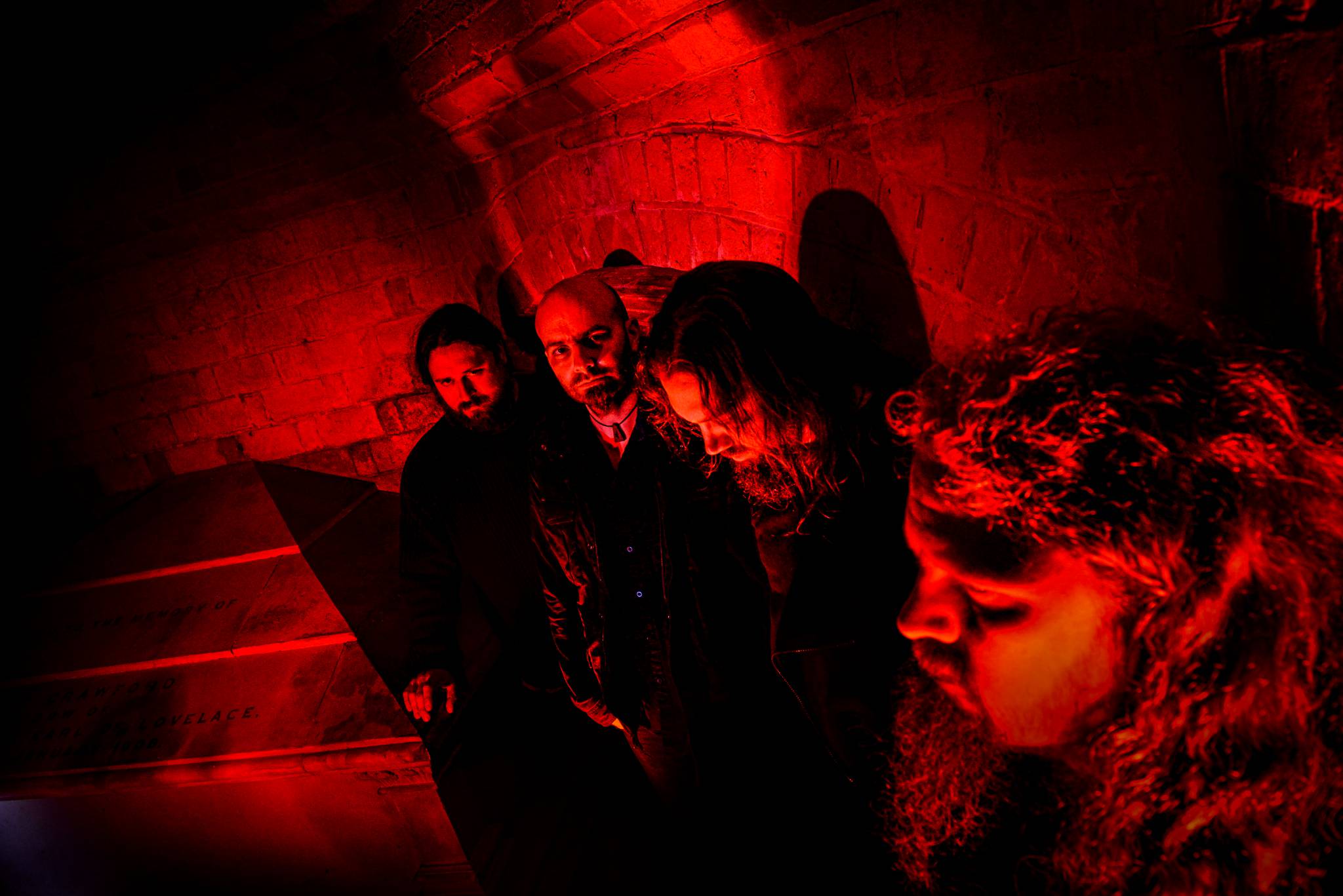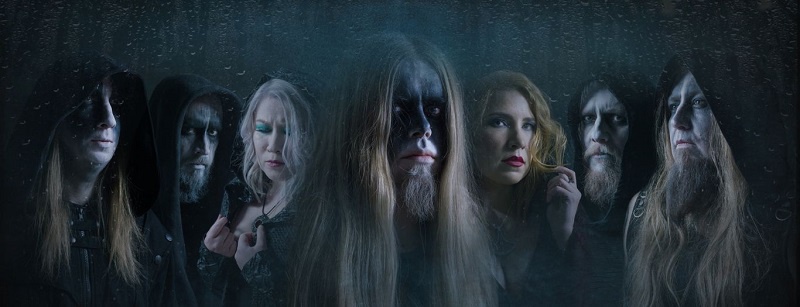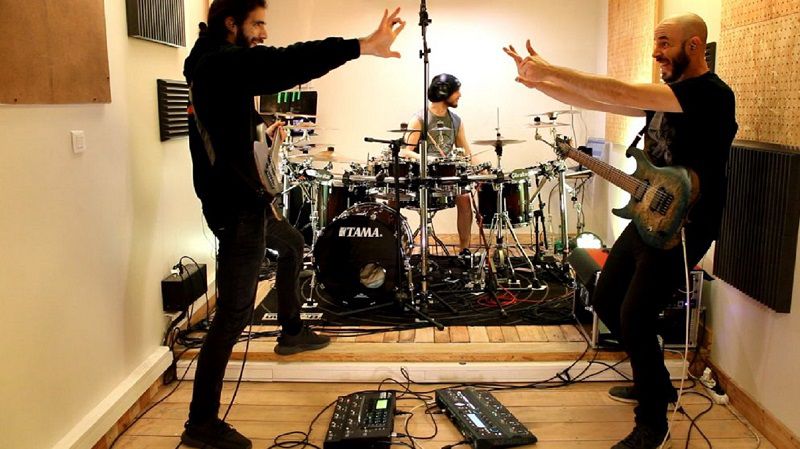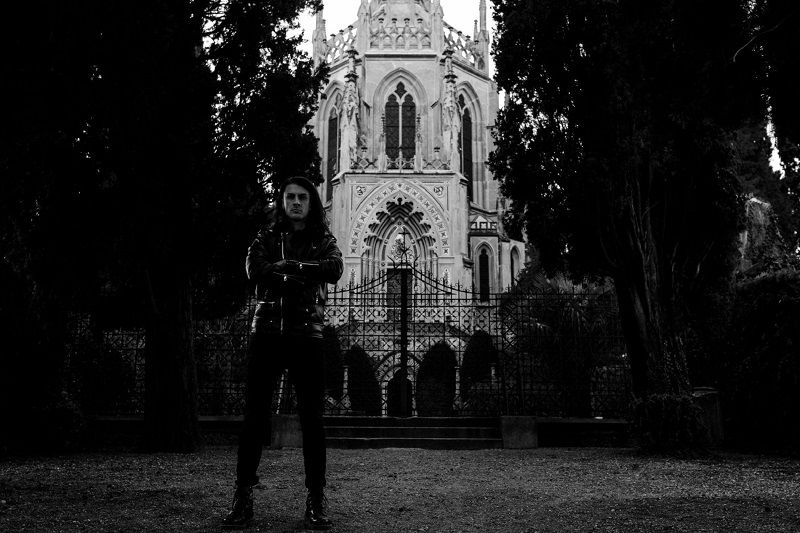AORT (< CODE >) INTERVIEW
7 min read
Emerging out of the twisted roots of second wave Black Metal in the early 2000s <code> has been an ever evolving entity of strange and wonderful music, sprouting up like an enticing, poisonous, multi-coloured mushroom every few years with a new record. Last month saw the release of the band’s excellent fifth studio album “Flyblown Prince” (check out our review here), which has been providing me with many a happy hour of mind-warping ever since. Band leader and founding guitarist Aort kindly agreed to an interview and had plenty of interesting insights about the band. So do read on…
Thanks a lot for agreeing to do this interview with Blessed Altar Zine. First off, I love the new album “Flyblown Prince”. How was the journey from the first song ideas to finishing the album and how has the reception been?
Aort: Thank you for your time and interest in <code> and we are glad to hear that you enjoyed the new album. As with many of albums, a great deal of work was put into this release. We do not put out albums lightly so it is always a big commitment from the commencement of writing to the final release. The reception has been hugely encouraging. Our last two albums have been a little polarising so I can’t lie and say that it isn’t nice to get more universally good reviews. Of course, not everyone has been onboard but in general this is the best reception to an album that we have had for some time. It is a nice position to be in.
The new album has a very theatrical atmosphere to it. It feels like listening to a dark opera. Is there a story underpinning the album as a whole?
Aort: Not an explicit story, but more a common thread running through the album. Our albums have often been filled with symbolism that is really a metaphor for inner turmoil and anxiety and this album is certainly no different. There are many different angles in the album but they are always analogous to what is going on under the surface for us personally. It is a very soul bearing album.
Listening to “Flyblown Prince” I feel like I’m hearing a lot of elements, some very un-metal. What were the biggest influences and inspirations on the new record musical or otherwise?
Aort: We are a very inward focused band. Although our musical tastes within the band are extremely varied, we don’t consciously allow these influences into what we are doing. It will undoubtedly have a subconscious effect but nothing that we are knowingly opening the doors to. We each have our own way of writing and playing and we are constantly looking to make what we do as interesting to us as possible but never to force innovation for the sake of it.
How much of an impact did the pandemic have on the making of the new record?
Aort: It didn’t have a huge impact in all honesty. The way we make albums hasn’t really changed too much over the years so we managed to get some pre-production done and drums recorded as a group prior to the pandemic, after which we recorded our elements separately. Communication these days is such that people can collaborate remotely very effectively. The ideal would to all be in the same room when recording but budgets are such these days that this isn’t generally very affordable so the net impact was negligible.
<code> has gone through some major lineup changes over the years. Who was in the original lineup of the band and how did you first get together?
Aort: I am the sole original member of the band. <code> was created sometime in 2002 I think. Kvohst and I got together and decided to create something new. We had similar taste in music, especially from the early second wave of black metal and felt that a gap had been left where the more avant garde black metal had branched off into the absurd and that more earthy approach had been left alone. That was the genesis I would say. We wanted to create music that we liked and that we didn’t think was being met by anyone at that time.
What were your biggest musical influences when you started the band?
Aort: I’m not sure of there were conscious influences but the sort of bands we really enjoyed that perhaps we were leaning on were Kvist, Dodheimsgard, Master’s Hammer, Necromantia, Dies Irae (Circle of Leth), Unholy and of course Ved Buens Ende. There was also a healthy prog influence so the list there is pretty exhaustive too.

Each <code> album has its own very distinct sound. What have been the biggest contributing factors to the particular sounds from one record to the next?
Aort: The biggest contributing factor I would say is that we consciously didn’t try to pre-determine how each album should sound. The albums tend to develop from whatever we happen to be writing at any particular time and once the first two or so songs have been created, it is usually more easy to work out what types of songs are required to complete the album. Particular songs either feel like mid album songs, openers or closers and as a result, the writing towards the end of the album tends to focus on what is missing in order to create a well rounded album.
The band’s recording history seems to have spanned Finland, Sweden, Norway and England (at least!), plus I think you have some Scottish roots and you’re now based in New Zealand. How significant has this international aspect been to the identity of the band?
Aort: I think the identity of the band is more linked to the individuals that form the band at any one time more than their place of birth or residence. I will be honest and say that the various nationalities has confused the identity of the band rather than been a source of identity. One aspect I would say is that the vocalists have both been English of origin and that to me is evident in the lyrics given their reference to English traditions and history.
<code> seems to be a musical project that lays dormant for periods of time to then pop up with a new record each few years. What’s the spark that brings about a new <code> album?

Aort: As I said in a previous answer, it takes a great deal of time and energy to produce an album so we need to be ready for that commitment. It can also be something more abstract, where it just feels like the right time to start writing and when we do, what is coming out is something that can be worked on. We have other projects we are involved in too so downtime from <code> is never a case of us being idle. When the time is right and stars align, the work begins.
Living in the internet age have you found the band’s name to be a limiting factor to becoming more well known (<code> is quite hard to search for), or is it a positive to be a bit mysterious, like a secret club that not everyone knows the password to get into?
Aort: In retrospect it wasn’t the greatest choice of band name I have to admit. It certainly is an extremely unsearchable band name. What we do to try and counteract that is make sure that our album titles are quite unique so that people can search in that way if all else fails. Getting towards twenty years in, it is too late to change but yes, the band name is one that in an ideal world we would have chosen differently.
<code> releases always come on various formats. What do you think the pros and cons to different formats are and if your house was burning down which records from your own collection would you have to save?
Aort: It comes down to personal preference at the end of the day. It is nice to be able to offer our releases in various forms so that hopefully we cater for most requirements. Myself personally, vinyl is and always will be king. It is the ultimate format and the format that I spend the most time listening to. I have a huge affection for cassettes too so I do purchase these as well. CDs fall into the ‘if all else fails’ category for me although obviously sound wise they are clearly the most consistent. I tend to get electronic copies of my favourite releases so I can listen to them on the go but while at home, generally it is vinyl or cassettes that I listen to.
Items from my collection that I would save? Well that is a hard one but there are a handful that I am hugely attached to so these would include my original copies of ‘First Utterance’ by Comus, ‘It’ll All Work Out in Boomland’ by T2, ‘The Full Circle’ by Forest and my ‘Those Who Caress the Pale’ demo by Ved Buens Ende and the ‘Seventh son of a Seventh Son’ cassette that I have had since it was released in 1988.
Finally, is there anything else you’d like to mention or promote?
Aort: Thank you so much for your interest and time. We appreciate it and also to your readers who have taken the time to work through these words. Thanks, hails and please listen
Interview by Tom Boatman
Thanks again to Aort for his time. Flyblown Prince is available now on Karisma & Dark Essence Records. You can pick up a copy from one of the links below and follow the band on bandcamp and Facebook to keep up to date with future news and releases.
Label
Bandcamp
Website
Facebook
Instagram
Twitter
**Please support the underground! It’s vital to the future of our genre. **
#WeAreBlessedAltarZine
#TheZineSupportingTheUnderground



